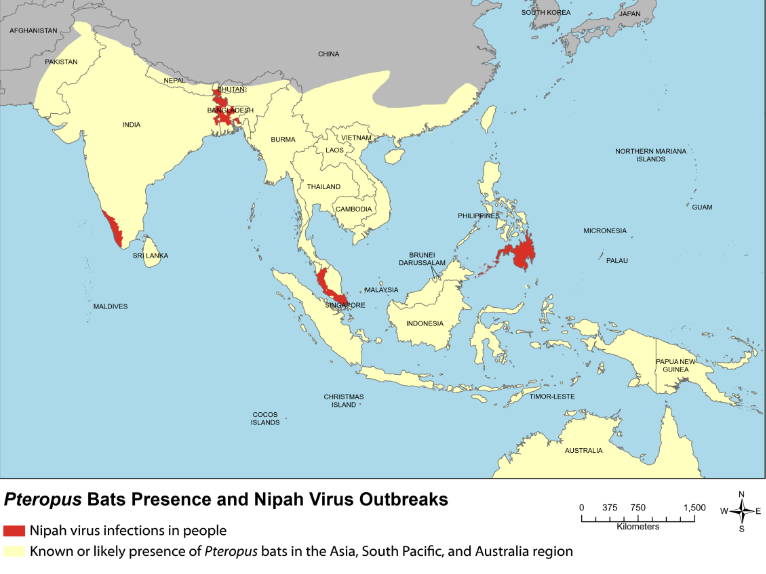The Nipah virus has caused an outbreak in India, killing two people and shutting down schools, public transportation, and offices in the southern state of Kerala. The virus has a 40-75% death rate, and has caused several outbreaks in India, the Philippines, Bangladesh, Malaysia and Singapore since 1988.
The virus can be transmitted from pigs or fruit bats to people, with the first known outbreak being among pig farmers in Malaysia. The virus is transmitted through contact with infected animal’s tissue or bodily fluids. Another common source of transmission is from fruit that has been contaminated with the saliva of fruit bats. The virus can also be transmitted from human to human, with caregivers or loved ones of the infected usually falling victim. The mortality rate of the virus can vary from outbreak to outbreak, with the Centers for Disease Control saying it will land anywhere between 40-75%.
What are the common symptoms? Mild cases can present a fever, cough, headache, vomiting, or sore throat, while more severe cases can result in disorientation, confusion, drowsiness, seizures, a coma, or swelling of the brain according to the CDC. There is no vaccine available to prevent the virus. Usually the recommendations are for the patient to get rest and drink water, with doctors trying to manage symptoms as they appear.
Indian officials have created 43 containment zones in Kerala for anyone who came in contact with the infected or who have reported a fever. Over 900 people are being tested for the virus as Indian officials try to contain the spread. So far, the consensus among experts is that it is unlikely for the virus to spread outside of India, and though Nipah doesn’t pose a larger global threat, it could be devastating for those in the area of the outbreak. With such a high fatality rate, it is likely that more will lose their lives to this virus before the outbreak is over. The virus can also leave people experiencing frequent and persistent convulsions or personality changes after they get better, permanently impacting their lives even after they recover.




















